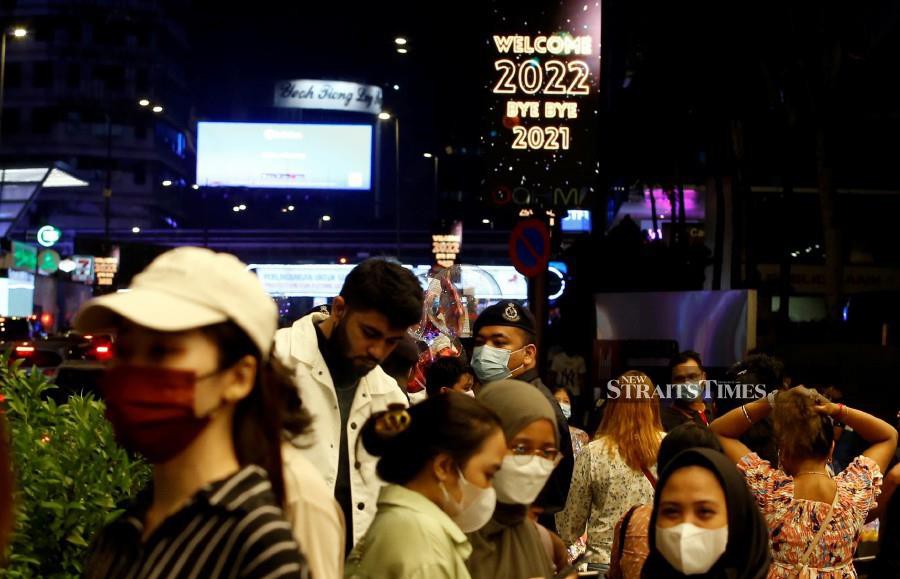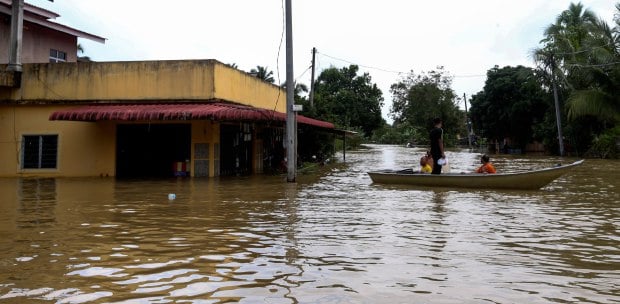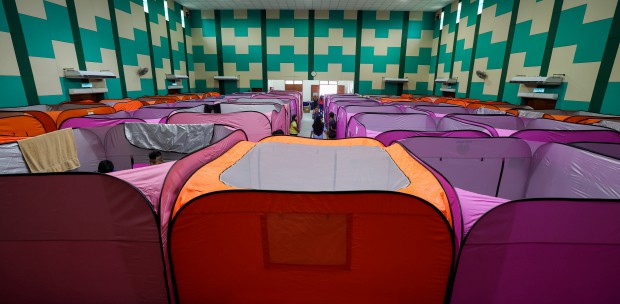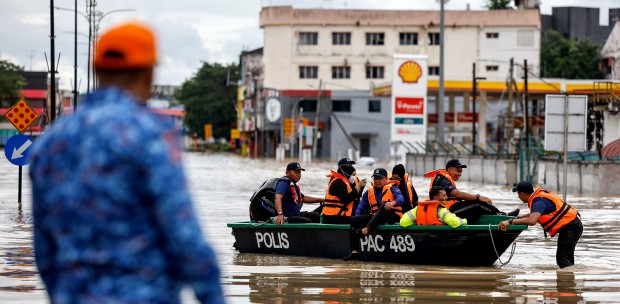HOW swiftly time flies, even when no one's having fun. Malaysia ushered in 2021 with a new Covid-19 wave and ended it with waves of flash floodwaters.
As we enter 2022, the nation is bracing itself for a second wave of floods, which is predicted to hit six states, and praying that we won't have an Omicron wave to contend with any time soon.
And though the last two years have largely been focused on surviving Covid-19 and its effects on the economy and our mental health, the last two weeks of last year reminded us, with a body slam, that Covid-19 is not the only challenge this country has to face.
And unlike the cabinet members and parliamentarians that took time off to holiday abroad, unfortunately Mother Nature does not take a break. So we would do well to remember that and make our preparations for disaster response and management for events that will not wait for us to wake up first before it hits us.
More than ironically, the nation had celebrated the National Preparedness Month in October. The prime minister had officiated a launching ceremony and a new theme ("Malaysian Family Prepared for Disaster") was announced, and the National Disaster Management Agency (Nadma) head said the month was aimed at enhancing awareness and preparedness in times of disaster, especially during the monsoon season.
Thirty-six programmes and activities had been lined up that month to achieve that. Unfortunately, as history will record, launch ceremonies and preparedness programmes are useless if they do not translate to real and swift action when disaster actually strikes.
And though the government is still licking its wounds from the public vitriol, that is nothing compared with the suffering the flood victims will have to contend with.
So, it is reassuring to hear that, in preparation for the second wave, the Armed Forces has deployed thousands of personnel and hundreds of assets to 86 locations nationwide to help Nadma for when the floods come again.
Hopefully, the previous issue of whether or not Nadma needs the Armed Forces' help, and whether the Forces — or any other rescue and relief agency — will have to wait for an invitation or request for help from Nadma will not arise again.
With everyone on the ground, ready and waiting, the second wave will test Nadma's preparedness to manage and coordinate all the teams together. Regardless of how well or poorly they perform, "Abang Viva" has promised to be there to help.
On the Covid-19 front, the government took some last-minute proactive measures by banning New Year's Eve celebrations and large gatherings in public locations nationwide.
That is a far better strategy than having machine-gun-toting uniformed personnel on the streets of Kuala Lumpur driving people away from public Christmas decorations on Christmas Eve, which created a viralled wave of concern with regards religious freedoms.
But, with infection figures still yo-yoing in the thousands, why did this precautionary measure have to wait until the eleventh-hour before being implemented? As we enter the third year of this pandemic, why are the government's measures still more sudden and unpredictable than snap polls? As we usher in the new year, the people's wishes are for the government to be better prepared, and ready to lead properly.
But for now, their key performance indicator report card should read: Must try (much) harder.





